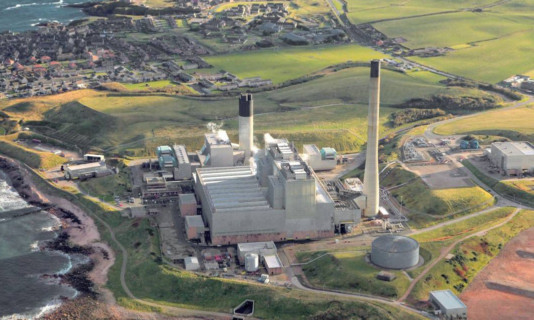Perth-based power company SSE is mothballing a third of the natural gas withdrawal capacity at Hornsea in Yorkshire due to unfavourable market returns.
The site accounts for about 5% of the total gas storage capacity in Britain, but SSE said the costs of operating the older withdrawal plant are not supported by market returns.
The mothballing will take effect from May 1, and the company said the change will ensure the storage service offers greater value for gas storage customers although it will cost 12 jobs.
SSE made the announcement as it entered its closed period prior to publication of its 2015 annual report on May 20.
Gas storage operators are faced with low returns due to unfavourable market conditions and increasing costs, with the rise in business rates for gas storage facilities.
In electricity generation the company said the market was favouring assets that are flexible and reliable, cost less to maintain and emit less carbon dioxide.
This was a consequence of factors including the increased cost of coal-fired generation over gas-fired generation.
The trend was illustrated this week with SSE’s gas-fired power station at Peterhead winning a crucial £15 million contract from the National Grid at the expense of Scottish Power and a third bidder.
As a result an “extremely disappointed” Scottish Power announced it would close its huge coal-fired power station at Longannet in Fife, which employs 270 people, early next year.
SSE said it would continue to invest in Peterhead to improve the station’s flexibility to allow it to operate from this winter at up to 400MW.
It will also conduct a detailed assessment of the limited longevity of its coal-fired station at Ferrybridge in Yorkshire and Fiddler’s Ferry in Cheshire during 2015-16.
The company is further bringing its Keadby gas-fired power station in Lincolnshire out of “deep mothball,” and the smaller waste-derived fuel power station at Ferrybridge, of which SSE owns 50%, is expected to begin generation soon.
SSE’s gas-fired station at Great Island in County Wexford, Ireland is expected to be fully commissioned in the near future.
* The big six energy firms stand to make increasing profits from households amid falling wholesale gas and electricity prices, according to analysis by regulator Ofgem.
Its latest Supply Market Indicator estimates firms could earn a margin of £118, or 9% of an estimated annual dual fuel bill, over the next 12 months, up £5 from its previous estimate.
Overall bills themselves are expected to be £1,295, £6 lower than the figure pencilled in last month, and £60 less than the total expected a year ago, following cuts to gas tariffs announced earlier this year.
Wholesale gas and electricity costs are expected to be £80 less than last year’s estimate.
